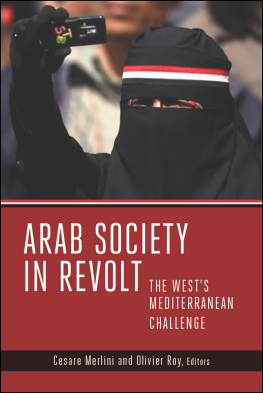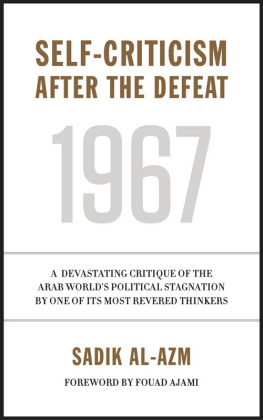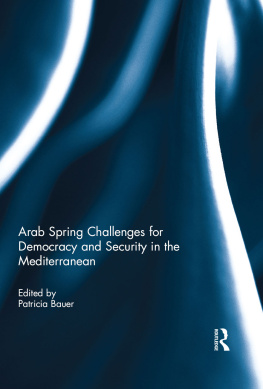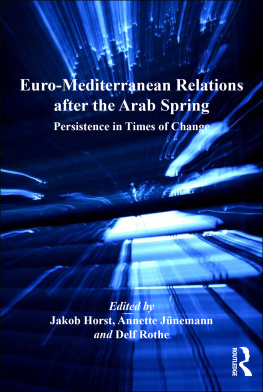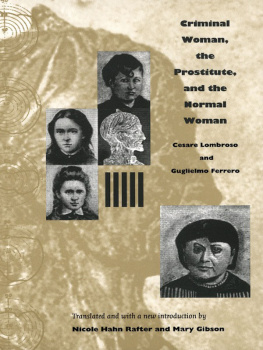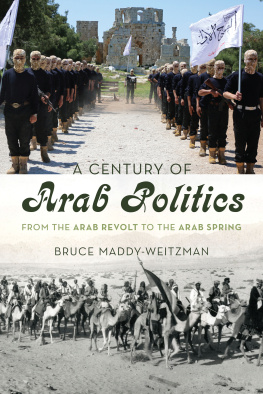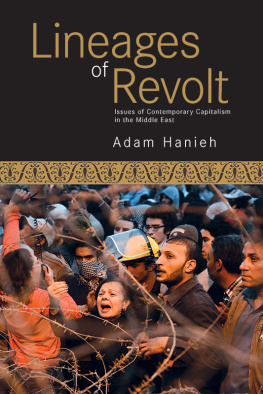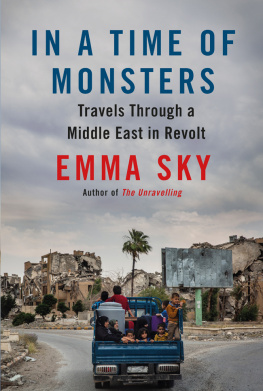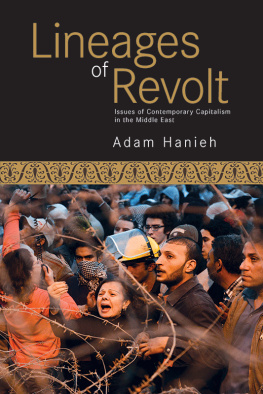ABOUT BROOKINGS
The Brookings Institution is a private nonprofit organization devoted to research, education, and publication on important issues of domestic and foreign policy. Its principal purpose is to bring the highest quality independent research and analysis to bear on current and emerging policy problems. Interpretations or conclusions in Brookings publications should be understood to be solely those of the authors.
Copyright 2012
THE BROOKINGS INSTITUTION
1775 Massachusetts Avenue, N.W.
Washington, D. C. 20036
www.brookings.edu
All rights reserved. No part of this publication may be reproduced or transmitted in any form or by any means without permission in writing from the Brookings Institution Press.
Library of Congress Cataloging-in-Publication data is available.
ISBN: 978-0-8157-2396-7 (pbk. : alk. paper)
9 8 7 6 5 4 3 2 1
Printed on acid-free paper
Typeset in Minion
Composition by R. Lynn Rivenbark
Macon, Georgia
Printed by R. R. Donnelley
Harrisonburg, Virginia
O n December 17, 2010, a twenty-six-year-old street vendor named Mohamed Bouazizi doused himself with gasoline, lit a match, and set himself on fire outside the municipal headquarters of a provincial Tunisian town. His desperate act followed persistent harassment from local officials that interfered with his livelihood and culminated in the confiscation of his grocery cart. This tragedy was the spark that ignited a regional conflagration and the biggest geopolitical transformation since the fall of the Berlin Wall. Over subsequent weeks and months, protests swept across the Arab world and led to the fall of four dictators whose collective tenure in power totaled almost 120 years.
Scholars, officials, journalists, and people around the world reacted in the manner typical of all human beings who are confronted with the unexpectedthey strived to understand what was happening. Grasping for the right words to describe the stunning chain of events unfolding before their eyes, broadcast on their television screens and conveyed through their social media accounts, the most common term deployed was the Arab Spring, which evoked earlier bursts of peaceful revolts against totalitarian regimes in Europe, especially the Prague Spring of 1968. Others preferred to talk about an Arab Awakening, in homage to George Antonius's 1938 book about the rise of Arab nationalism: whatever the season and however events turned out, whole populations and societies were rising from what often seemed to be decades if not centuries of somnolent acceptance of rule from on high.
Of course, every attempt to characterize the complexity of what unfolded in 2011 in a simple phrase, by necessity, failed to capture certain important issues or left plenty of pertinent questions unanswered. Arab Spring implied a parallel with earlier events in a vastly different region. It also said nothing about what the summer, or indeed winter, following the spring would yield. Likewise, Arab Awakening offered no view of what is likely to happen once those societies stirred to political life.
For every pithy conceptualization of complex events, there are additional lenses through which to examine them. One of the several virtues of this book is precisely that it brings different perspectives to bear on the complexity, diversity, and uncertainty of recent and current events in the Arab world. The thirteen authors concentrate on the critical social forces shaping the regiondemography, religion, gender, telecommunication connectivity, and economic structuresand they are painstakingly analyzed and evaluated. Cesare Merlini, nonresident senior fellow in Brookings's Center on the United States and Europe, and his coeditor, Olivier Roy, point out in their introduction that months before Mohamed Bouazizi's self-immolation, the contributing authors were already thinking deeply about the societal trends across the Mediterranean's southern shore and the subterranean pressures that were building. Of course, the resulting earthquake gave added impetus to the project, while also generating a wealth of new observable trends to be analyzed.
One theme running through a number of chapters is the increasing importance of the individualincluding the individualization of religious faith; the lighter family burden being borne by individuals due to falling fertility rates; an ever-increasing yearning among women for a more active role in society; individuals connecting with one another in cyberspace; and the individual's desire for economic opportunity. Societies are ultimately comprised of millions of people, and this book points to the profound importance of individual empowerment in societal change across the region.
Another recurring topic is the need to resist the temptation of applying inappropriate historical analogies to contemporary events. History must inform the way we grapple with what is unfolding before us. But, we must refrain from merely transplanting ideas and assumptions drawn from other eras, contexts, and geographical locations to a different one. There is no substitute for a nuanced, detailed understanding of the vortex of forces at work in the region, and this book contributes much to that body of knowledge.
In the best tradition of policy-oriented scholarship, it also offers recommendations for policymakers in the United States, Europe, and around the world. It presents new analytic frameworks for thinking about the region, building on the comprehensive analysis of social forces, rather than relying on old paradigms.
Arab societies are in revolta process that will not be completed for years, if not decades. The basic human desire to understand is often followed by another one, the urge to assist. The chapters that follow help to meet both desiresthey help us to comprehend what is going on, but they also inform how external actors might assist the process of societal change in North Africa and the Middle East to ensure that change is ultimately positive and that the demands for individual empowerment and good governance are realized.
As my Brookings colleague Salman Shaikh, director of our Doha Center, wrote in the midst of the upheaval, In today's Middle East, people matter. Many are now engaged in what could be a lifelong struggle to fight longstanding grievances and take greater control of their lives. The ideas and prescriptions in this book are an important part of the arsenal for waging that lifelong struggle.
STROBE TALBOTT
President, Brookings Institution
June 2012
T he draft texts of the chapters of this book were first discussed in a seminar hosted by the Robert Schumann Center of Advanced Studies at European University Institute in Florence in February 2011. A second version was the object of a conference held in the Paris premises of the World Bank in November 2011. The entire exercise profited highly from the qualified contributions to the debate that came from the following participants in either or both events: Samir Aita, editor in chief, Le Monde Diplomatique, Arabic edition; Margot Badran, Center for Muslim-Christian Understanding, Georgetown University; Assia Bensalah Alaoui, ambassador-at-large, Kingdom of Morocco; Jon Anderson, Catholic University of America; Jonathan A. C. Brown, professor of Islam and Muslim-Christian Understanding, Georgetown University; Nathan J. Brown, Carnegie Endowment for International Peace; Anna Carrabetta, Promos, Milan; Silvia Colombo, Istituto Affari Internazionali, Rome; Alain Dieckhoff, Centre d'Etudes et de Recherches InternationalesSciences Po (Institut d'Etudes Politiques de Paris); Francis Ghiles, Centro de Estudios y Documentacion Internacionales de Barcelona; Giorgio Gomel, Bank of Italy; Mohammed Hachemaoui, Universite Paris 8 and University of Algiers; Thibaut Jaulin, European University Institute; Mustapha Kamel Al-Sayyid, Cairo University; Mats Karlsson, director, Center for Mediterranean Integration, Marseille; Bichara Khader, Catholic University of Louvain; Eberhard Kienle, Centre National de la Recherche Scientifique, Paris; Francois Lafond, then with the German Marshall Fund of the United States; Ian Lesser, head of the German Marshall Fund European office in Brussels; Nadia Marzouki, European University Institute; Karim Mezran, then with the Centro Studi Americani, Rome; Boris Najman, Universite de Paris-Est; Massimiliano Paolucci, World Bank, Rome; Raed Safadi, Organization for Economic Cooperation and Development, Paris; Luigi Sampaolo, Eni, Rome; Giuseppe Scognamiglio, Unicredit, Rome; and Mohammad Selim, Cairo University.

